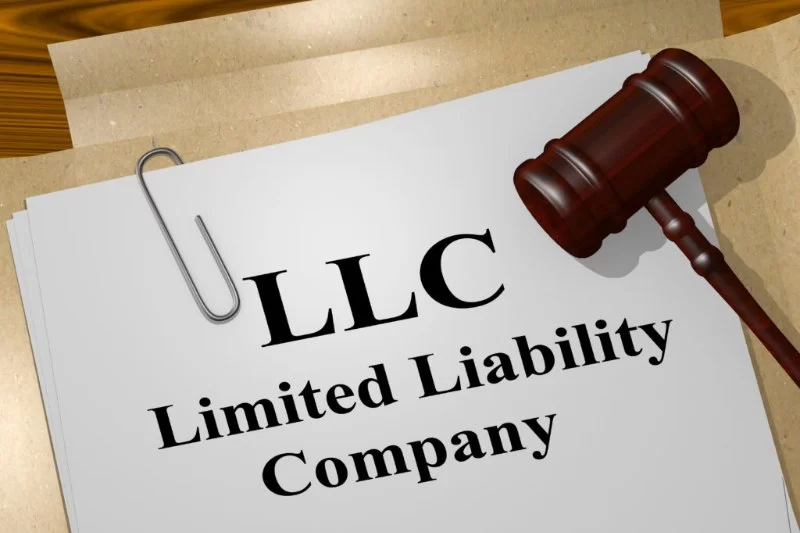What Is an LLC and When to Form One
- - What is an LLC?
- - Benefits of Forming an LLC
- - Steps to Form an LLC
- - When Should You Consider Forming an LLC?
- - LLC vs Other Business Structures
- - Common LLC Mistakes to Avoid
1. What is an LLC?
An LLC, or Limited Liability Company, is a business structure that combines the flexibility and tax benefits of a partnership with the liability protection of a corporation. LLCs are popular among small business owners because they offer a straightforward way to protect personal assets while also benefiting from pass-through taxation, meaning the business itself is not taxed on profits, only the individual owners are taxed on their share of profits.
1.1 How LLCs Protect Your Personal Assets
One of the primary advantages of forming an LLC is the protection it provides against personal liability. As an LLC owner, your personal assets (like your home or car) are generally protected from any business debts or legal issues, meaning that only the assets of the business itself are at risk in the event of a lawsuit or bankruptcy.
2. Benefits of Forming an LLC
Forming an LLC comes with several key benefits that make it an attractive option for business owners:
2.1 Limited Liability
As mentioned earlier, LLC owners (members) have limited liability protection, meaning their personal assets are shielded from business debts and lawsuits. This is one of the most compelling reasons to choose an LLC over a sole proprietorship or partnership.
2.2 Pass-Through Taxation
LLCs benefit from pass-through taxation, where the company itself does not pay taxes on its profits. Instead, the profits pass through to the individual members, who report the income on their personal tax returns. This avoids the double taxation that corporations face, where both the company and shareholders are taxed.
2.3 Flexible Management Structure
LLCs are flexible in terms of management. Unlike corporations, which have a fixed management structure (board of directors, officers), LLCs can be managed directly by the members or by appointed managers. This flexibility allows business owners to decide how to run their operations and allocate profits.
3. Steps to Form an LLC
Forming an LLC is a relatively simple process, but it does require careful attention to detail. Here are the key steps:
3.1 Choose Your LLC Name
The first step in forming an LLC is to choose a name that complies with your state’s LLC naming rules. The name must be unique, not already in use by another business, and include "LLC" or "Limited Liability Company" to indicate the structure of the business.
3.2 File Articles of Organization
Next, you must file the Articles of Organization (also called a Certificate of Formation or Articles of Incorporation, depending on the state) with the state’s business registration office. This document includes basic information about your LLC, such as its name, address, and the names of its members or managers.
3.3 Create an Operating Agreement
Although not required in all states, an LLC operating agreement is an important document that outlines how the LLC will be managed, how profits will be distributed, and other important aspects of the business's operation. It helps prevent disputes among members and clarifies the business's internal structure.
4. When Should You Consider Forming an LLC?
Forming an LLC is a significant decision that should be based on several factors. Here are some scenarios where you should consider forming an LLC:
4.1 If You Want Liability Protection
If you're running a business where you could be exposed to lawsuits or debts, an LLC is a great choice to protect your personal assets. This is particularly important for businesses offering services or products that could lead to legal claims.
4.2 If You Want to Improve Credibility
Having an LLC can improve your business's credibility with customers, suppliers, and lenders. It shows you have taken the necessary legal steps to protect your business and comply with regulations.
4.3 If You're Seeking Tax Flexibility
LLCs offer tax flexibility, allowing owners to choose how they want to be taxed. For instance, you can elect to have your LLC taxed as an S-corporation, which can provide additional tax benefits depending on your income and business structure.
5. LLC vs Other Business Structures
When deciding whether to form an LLC, it’s important to compare it with other common business structures, such as sole proprietorships, partnerships, and corporations. Each structure offers different benefits and drawbacks, so it's essential to choose the one that best fits your needs.
5.1 LLC vs Sole Proprietorship
A sole proprietorship is the simplest form of business, where the owner is personally responsible for business debts and liabilities. While it offers ease of setup and no formal paperwork, it lacks the personal asset protection that an LLC provides.
5.2 LLC vs Corporation
Corporations offer strong liability protection but are subject to more complex regulations and potential double taxation. LLCs, on the other hand, provide more flexibility with fewer formalities and avoid double taxation, making them an attractive choice for many small business owners.
6. Common LLC Mistakes to Avoid
While forming an LLC is a straightforward process, there are common mistakes that business owners should avoid:
6.1 Not Following State Regulations
Each state has different rules and regulations for forming an LLC. Make sure to research your state's specific requirements and ensure compliance to avoid legal issues down the line.
6.2 Failing to Separate Personal and Business Finances
One of the key benefits of an LLC is liability protection. However, if you mix personal and business finances, you could risk losing that protection in the event of a lawsuit. Always keep separate accounts and records for your business.
If you're considering forming an LLC or need legal advice, visit Fred Miller Lawyer for professional guidance and services tailored to your needs.


 kurczaba attorney
kurczaba attorney brandon j broderick llc
brandon j broderick llc austin miller attorney
austin miller attorney lavonda graham williams attorney
lavonda graham williams attorney services offered by morgan and morgan philadelphia
services offered by morgan and morgan philadelphia david pedrazas reviews
david pedrazas reviews